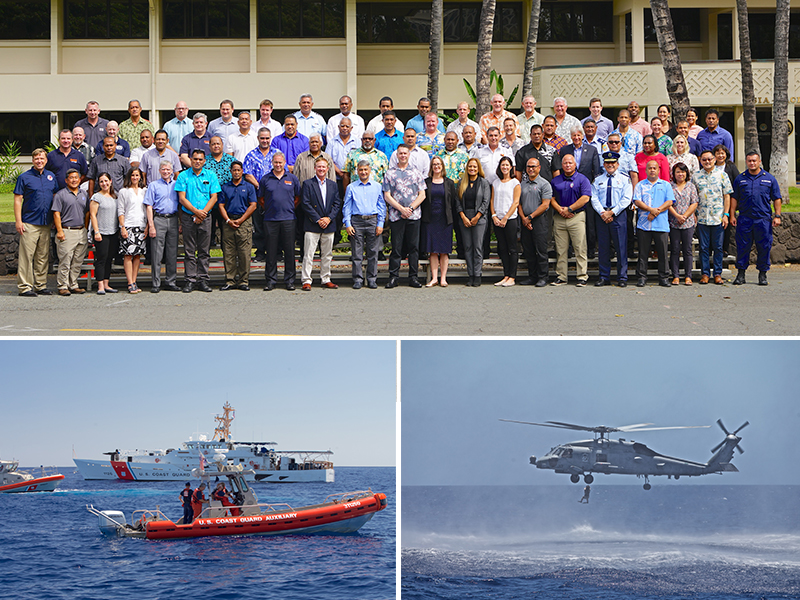A mass rescue operations sea and air search and rescue (SAR) exercise in the Pacific Ocean off Hawaii, United States, was just one key element in the 8th Regional Pacific SAR (PacSAR) Workshop (22-26 July). The workshop, organized by IMO in collaboration with the Pacific Community (SPC), aimed to promote ratification of the International Convention on Maritime Search and Rescue, 1979 (SAR Convention) in the region, identify gaps and promote common best practices in SAR services. (Video)
Besides the practical MRO exercise, participants, including Pacific Island SAR administrators and coordinators, attended classroom-based sessions covering a range of issues. These included SAR coordination across the Pacific Islands region; the effectiveness of SAR and MRO Planning and Management; and understanding of the international requirements for SAR. Sessions also addressed understanding of maritime and aeronautical SAR Services and the links between them; and understanding of the limitations of SAR aerial and surface assets to assist in improving detection and response efforts during SAR operations.
The workshop, which is held every two years, also provided an opportunity for learning through exchange of view and experience and an opportunity for Pacific Island Countries and Territories (PICTs) to review progress against the previously adopted PacSAR SC Strategic Plan 2017 - 2021. The workshop also facilitated compilation of an operational picture of regional SAR operations and available SAR arrangements and resources.
In addition, the workshop acknowledged the value and the potential of the Pacific Women in Maritime Association (PacWIMA) and national chapters in pursuing accident prevention measures, public awareness and education in the area of safety at sea; and invited PICTs to engage PacWIMA and national chapters in community work where possible.
The workshop was hosted by the United States Cost Guard Fourteenth District in Honolulu, Hawaii, with plenary sessions taking place in the Daniel K. Inouye Asia Pacific Centre for Security Studies (APCSS). The workshop was co-sponsored by the Governments of China, New Zealand and the United States of America, and supported by the Pacific Search and Rescue Steering Committee (PacSAR SC). Additionally, in-kind contributions were also provided by the Governments of Australia, France, New Zealand and the United States for the Mass Rescue Operations exercise, which involved four aircrafts including one helicopter, (provided by Australia, France, New Zealand and the United States) and three surface search units and other support facilities (provided by the United States).
